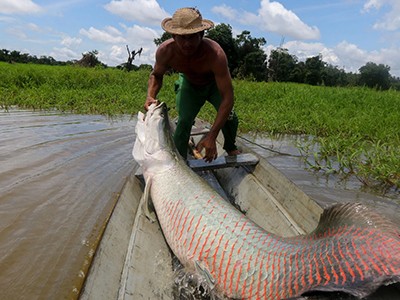
Credit: Right Livelihood
Melaku Worede was at the heart of efforts to secure Ethiopia’s heritage of crop diversity — and in ensuring that farmers benefited. From 1979 to 1993, he led one of the premier crop gene banks in the world, the Plant Genetic Resources Center in Addis Ababa (now the Ethiopian Biodiversity Institute). It was a time when uniform monocultures of crops such as maize (corn; Zea mays), wheat (Triticum aestivum) and barley (Hordeum vulgare) were being widely planted. Melaku was passionate about saving the diversity of traditional crops before they were lost. The practices that Melaku developed, which he referred to as ‘conservation through use’, are now applied around the world.
In Ethiopia, Melaku forged links between farmers, nurseries and laboratories to conserve indigenous varieties of cereals and other crops — from barley, sorghum (Sorghum spp.) and lentils (Lens culinaris) to coffee (Coffea arabica) and the cereal grass teff (Eragrostis tef), whose seeds are ground to make injera flatbread. Under his guidance, farmers’ traditional practices and knowledge became integral to agricultural development. He encouraged farmers to save seeds and conduct field trials to assess which crops grew best. The centre helped to reintroduce lost varieties and support farmers to conserve and develop stocks — connections that proved crucial in the recovery of Ethiopia’s rural population after the disastrous drought and famine of 1984. Today, some 50 community seed banks in Ethiopia still work with the national gene bank to support crop diversity.
Millions of jobs in food production are disappearing — a change in mindset would help to keep them
Born in Shewa province in central Ethiopia in 1936, Melaku, who has died aged 87, was one of 7 children. After finishing school in Addis Ababa, he studied agronomy at the Alemaya Agricultural College of Ethiopia in Harar (later Haramaya University). He studied briefly in Sweden before returning to Ethiopia to take up the post of dean of the Jimma Agricultural College. In 1972, he won a scholarship to the University of Nebraska–Lincoln in the United States, where he obtained his PhD in agronomy, specializing in genetics and breeding.
Keen to apply his skills to support food production in his homeland, Melaku returned to Ethiopia after his PhD and was invited to serve as the director of the Plant Genetic Resources Center, which had been established in 1976 with cooperation from the West German government. Melaku quickly made his mark. By 1986, the centre’s collection grew to 39,000 samples, of which 14,000 were from Ethiopia, covering most of the major crops from each regional and ecogeographic area.
Melaku fought globally for the acknowledgement of farmers’ contributions towards the conservation of plant genetic resources. He advocated for farmers’ rights to be recognized by international bodies such as the Food and Agriculture Organization of the United Nations (FAO). After 20 years of campaigning, the protection of traditional knowledge and recognition of farmers’ rights — to benefit from plant genetic resources and to be included in decision-making about conservation and use of these resources — were enshrined in the FAO’s International Treaty on Plant Genetic Resources for Food and Agriculture in 2004. The centre also trained agricultural officers and policymakers, shifting attitudes to development policy and strategy towards a greater emphasis on using local crop plant diversity for production and improvement.
Melaku shared his views and experiences worldwide: as the first chair of the African Committee for Plant Genetic Resources, chair of the FAO Commission on Genetic Resources for Food and Agriculture and a member of the International Plant Genetic Resources Institute board of trustees. In 1989, he received the Right Livelihood award for ‘preserving Ethiopia’s genetic wealth’. In 1993, he co-founded Seeds of Survival, a civil-society initiative that trained more than 170 specialists and technicians for genetic-resource programmes in Africa, southeast Asia and Latin America.
A scientist with deep knowledge and vision, Melaku was a generous mentor who shared his thoughts, knowledge and experiences fully. He was imbued with integrity and humility, and was a model to his colleagues, students and followers — including the many gene-bank curators and young scientists whom he advised, supported and trained. Ethiopia is a model for biodiversity conservation thanks to his pioneering achievements.

 Millions of jobs in food production are disappearing — a change in mindset would help to keep them
Millions of jobs in food production are disappearing — a change in mindset would help to keep them
 EU proposal on CRISPR-edited crops is welcome — but not enough
EU proposal on CRISPR-edited crops is welcome — but not enough
 Current conservation policies risk accelerating biodiversity loss
Current conservation policies risk accelerating biodiversity loss
 Address the growing urgency of fungal diseases in crops
Address the growing urgency of fungal diseases in crops
 How to reduce Africa’s undue exposure to climate risks
How to reduce Africa’s undue exposure to climate risks








